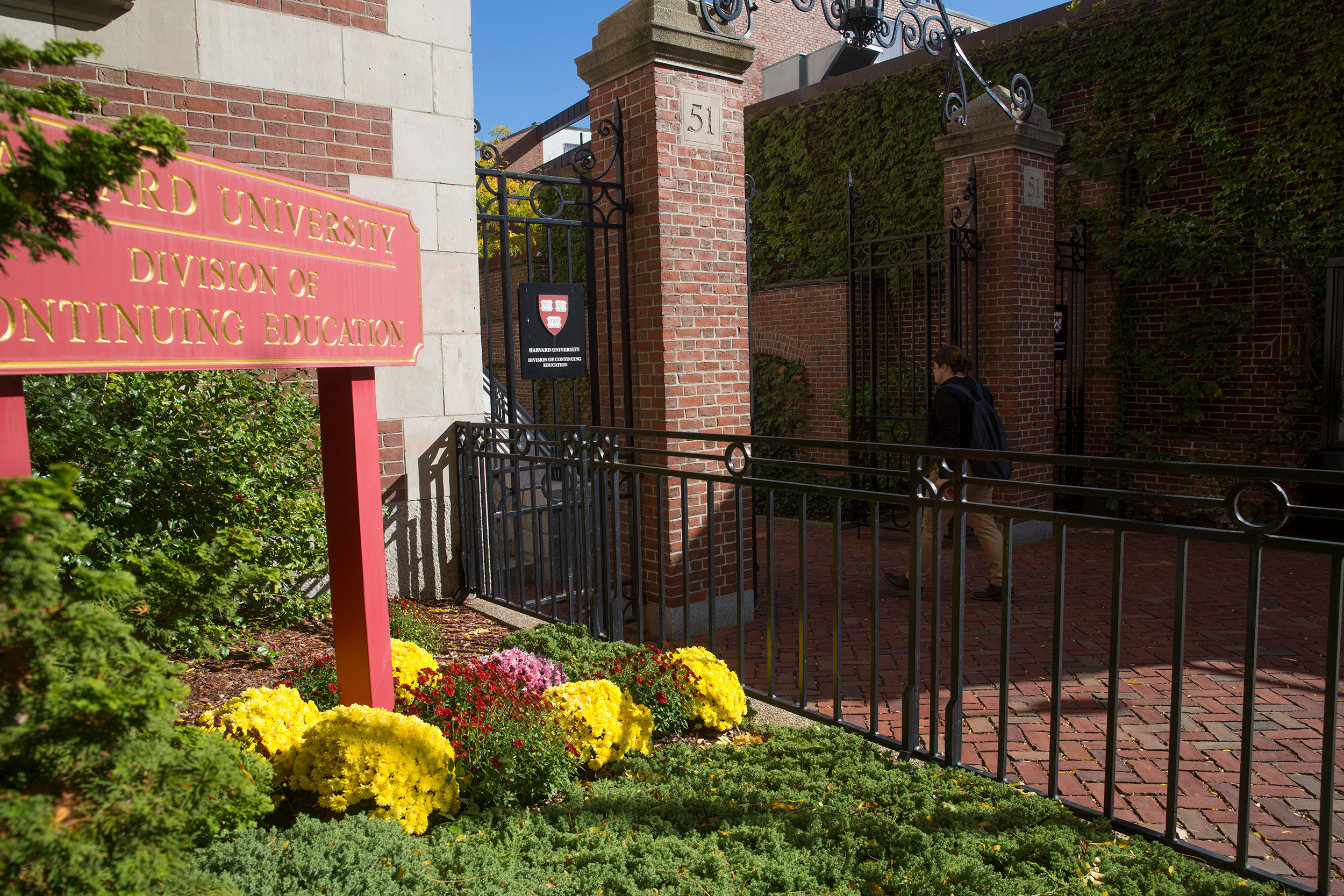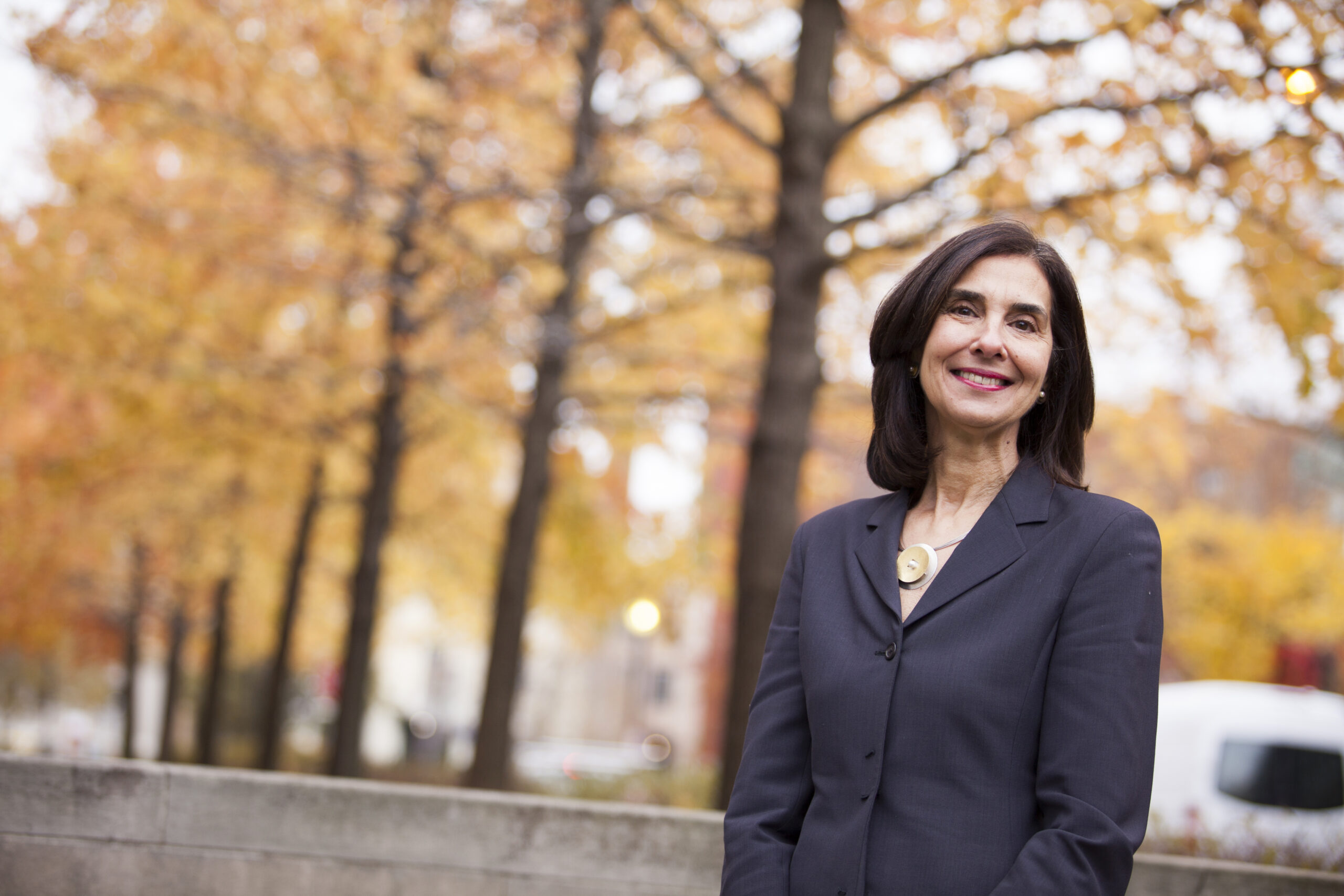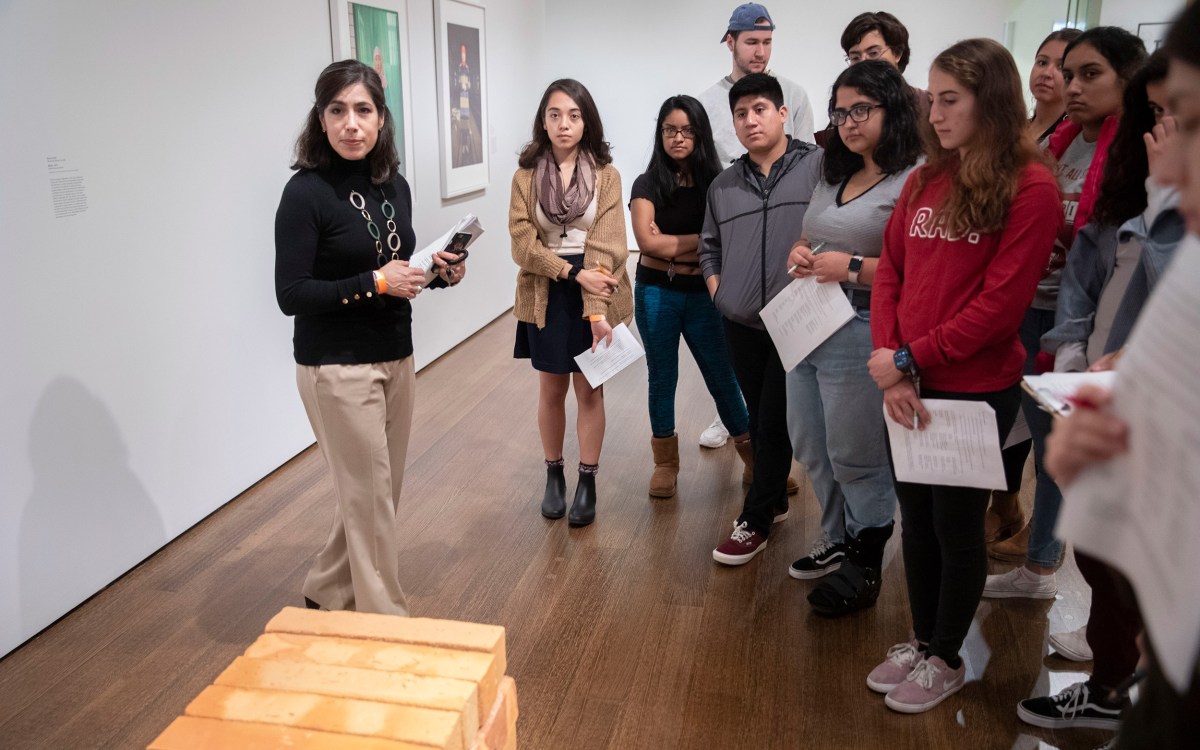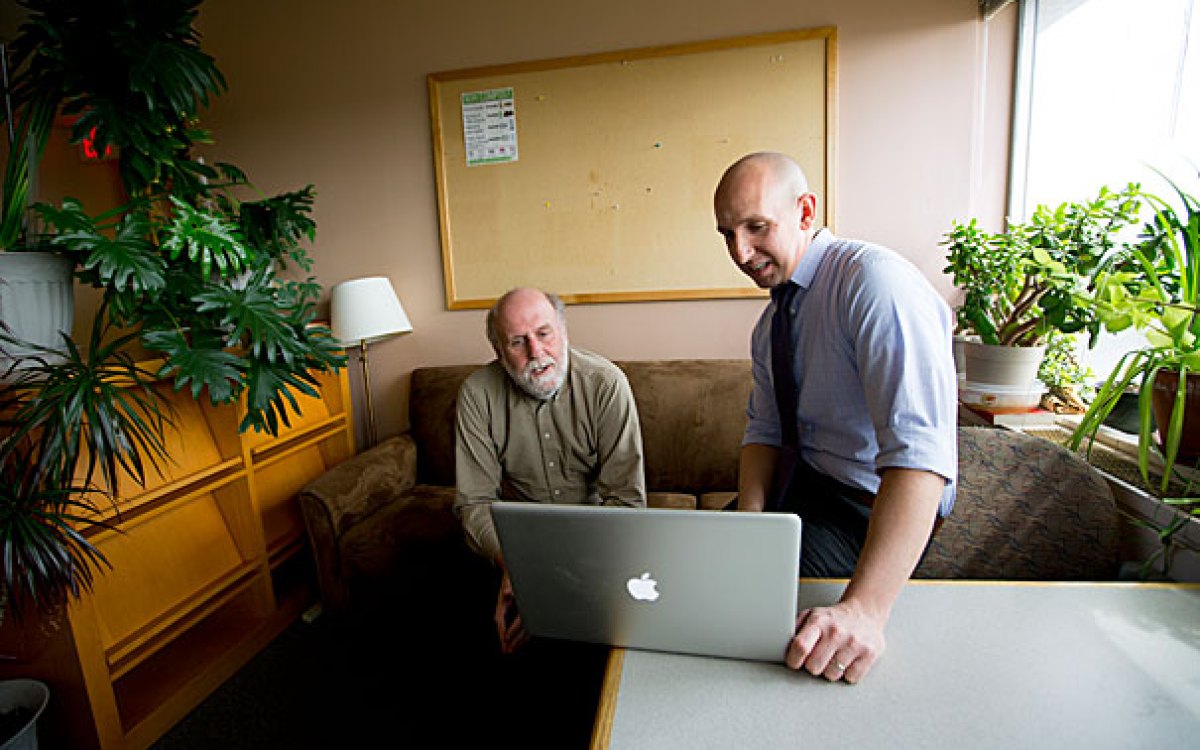
Jon Chase/Harvard file photo
What Harvard learned at Summer School
Pandemic gave useful insights to a program looking to increase its virtual presence
The pandemic forced Harvard Summer School fully online, nudging the program along in a direction it was already looking to explore.
“We already had a number of online course offerings on the books and had been thinking about how to strengthen our online learning communities pre-COVID,” said Sandra Naddaff, dean of Harvard Summer School. “So, challenging as the circumstances were, we were able to expand the initiatives we had been developing and pivot pretty quickly and successfully to a fully online experience.”
The Summer School General Program saw a 13 percent increase in students and a 9 percent rise in total enrollments, thanks in part to increased financial aid and waivers for students at Harvard College and the Graduate School of Arts and Sciences.
“I think we had a remarkably successful Summer School, not just because we had a significant increase in our enrollments, but more importantly because even though we were completely online, our students still had the powerful and exciting learning experience we promise, both inside and beyond this summer’s virtual classroom,” Naddaff said.
Faculty were able to relatively quickly convert their courses to an online format with some help from the Summer School Academic Affairs team and the Division of Continuing Education’s Teaching and Learning team, which supplied training and orientation. Students also had access to online tutoring, professional development guidance, and social and personal enrichment activities delivered virtually.
“I think we had a remarkably successful Summer School, not just because we had a significant increase in our enrollments, but more importantly because … our students still had the powerful and exciting learning experience we promise,” said Sandra Naddaff, dean of Harvard Summer School.
Stephanie Mitchell/Harvard file photo

Among those were a number of online panels and activities, including a Signature Speaker series in which faculty and experts spoke to some of the most pressing issues facing College students today. Presentations included “What Are You Going to Do With Your Life?”; “Racial Justice, Scholarships, and Activism”; and “Teaching Yourself and Others During a Pandemic.” These were co-sponsored by the Office of the Vice Provost for Advances in Learning.
Shirley Greene, associate dean of students at DCE, gave much credit for virtual community development to Kera Street and Cori Tucker-Price, the assistant deans helping out this summer, and to Mark Addison, a student support specialist.
“They were really keen on developing activities that focused on the holistic development of students, but also helped them to envision a future and to prepare for life beyond School,” said Greene.
The assistant deans, in collaboration with a group of Harvard admissions officers, organized weekly online graduate school fairs featuring representatives from Harvard Medical School, Business School, Kennedy School, and other grad schools at the University.
They also worked with BGLTQ Student Life on an event called “Queerness and Protest in the Time of COVID.” Other events included “Finessing Your Financial Future” with the Harvard Financial Aid Initiative and “Unlocking Your Academic Superpowers” with the Academic Resource Center.
Greene said the convenience of these virtual events helped attract speakers who otherwise may have been difficult to schedule, and also facilitated discussion among directors and the students.
“It’s important when students think, ‘That person sees me, and they know my name,’ and they have the ability to follow up with presenters,” Greene said. “We’re always thinking long-term about how to build those relationships that will last them a lifetime, and that was one of the things we were aiming for — helping students feel more connected and more in control.”
Virtual peer advisers, who included current Harvard College students and recent alums, also contributed to the success of the first online-only Summer School. Greene said they hired 20 advisers who helped students connect to events, activities, and resources, as well as navigate the online environment.
Whether summer 2021 will be held on campus, online, or in a hybrid setting is still unknown. What is certain is this year’s experience changed how the program sees the way ahead.
“The potential is large, not only to have an impact on students, but to have an impact on the way we think about teaching and learning, and how we can make these experiences more accessible to students,” said Greene. “We can still do [the Summer School program online] with the same level of commitment, dedication, and focus that really benefits the students we’re serving. That was kind of an a-ha moment — that we can be just as impactful.”







